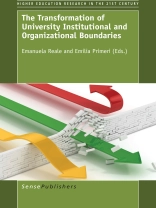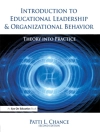An emerging issue in higher education studies is that of boundaries crossing. This is the main topic of the book “The transformation of University institutional and organizational boundaries”. Several signals of shifting boundaries can be envisaged in higher education and research institutions which could be glimpsed through organizations, the institutions and changes to the academic profession. That of boundaries crossing in Higher Education is a complex and heterogeneous issue, which characterizes scientific knowledge today and represents a key issue when looking at University transformations across contexts and policies, instruments and practices.
The analysis of boundaries supplies interpretative frameworks for the interactions between the development of professions and disciplines, as well as the relationships of the science with various parts of society such as state, professionals and the market. Fuelling further the discussion on HEIs transformations allows capturing changes in the function, objectives and scope of higher education and research institutions, the move beyond sectoral and disciplinary boundaries and the increasingly blurred boundaries of academic professions and of scientific work. Public policies and HE reforms can push or impede the mentioned transformations but they can also derive from individual likelihood of moving in blurring spaces or from the transformations of the epistemic communities and the emergence of new fields and sectors. Hence, changes are there, open to our observations.
表中的内容
Acknowledgement; Introduction; Shifting Institutional Boundaries: ‘Boundary Work’ of Academic Scientists in the Entrepreneurial University; What it Means to Become a Flagship University: Seeking a New Paradigm; Transforming Universities Institutional and Organizational Boundaries: Changing Functions, Objectives, and Scope of Higher Education and Research Institutions; Agencification Challenges in Higher Education Quality Assurance; Universities’ Third Mission Activities: Challenges to Extending Boundaries; Students and Startups: How New Forms of Entrepreneurial Learning and Practice Redraw University Boundaries; Institutional Inertia and Barriers to the Adoption of Open Science; Moving beyond Sectoral and Disciplinary Boundaries in Higher Education; Social Science Doctoral Training Policies and Institutional Responses: Three Narrative Perspectives on Recent Developments in and Consequences of the UK Transition to Collaborative Doctoral Training; Shifting Boundaries in Universities’ Governance Models: The Case of External Stakeholders; Blurring Boundaries in Academic Professions; Managing Learning Outcomes: Leadership Practices and Old Modes of New Governance in Higher Education; Inequality in Academic Knowledge Production: The Role of Research Top Performers across Europe; Conclusions; About the Authors.












